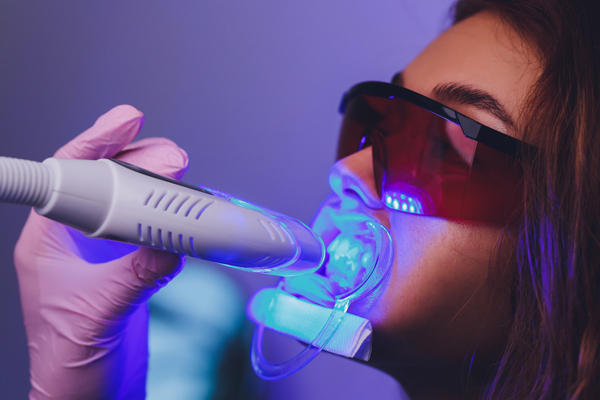



Dental bonding and dental crowns are two common types of restorative dental procedures. Many general dentists offer both treatment options, and there are pros and cons to each procedure. Understanding when a general dentist may recommend dental bonding or a crown can help you decide which option is more appropriate for you.
Dental bonding vs. crown: How to decide the best option
The best way to determine which treatment option is right for a patient is for them to visit with a dentist to discuss all available restorative dentistry options. This review provides general insights into the purpose and procedure for both dental bonding and dental crowns to make patients more prepared in advance of their dental visit.
When is dental bonding recommended?
Dental bonding is a dental procedure that involves placing and molding composite resin to a damaged tooth or a tooth with a natural cosmetic imperfection to improve its appearance, functionality and the patient’s oral health. It is recommended for patients who have a chipped tooth, a cracked tooth, spaces between teeth or teeth that are too short. Dentists typically use dental bonding to treat cosmetic concerns, rather than using the treatment as a long-term solution for serious oral health issues.
When is a dental crown recommended?
A dental crown, also called a dental cap, is a form of dental restoration that is placed over a damaged tooth. It completely encapsulates the tooth on every side, offering superior protection. There are different types of dental crown materials, including ceramic, porcelain-fused-to-metal, metal alloy and gold. Dental crowns can address a range of concerns as well, including chips, cracks and worn-down teeth. Dentists typically recommend dental crowns if the issue goes beyond cosmetic imperfections and primarily affects the patient’s oral health.
The pros and cons of dental bonding and crowns
Dental bonding is an affordable treatment option that can improve the patient’s appearance and offer some tooth protection, although it is not as strong and durable as a dental crown. A crown is often more expensive than bonding, and it can address issues that affect the patient’s oral health more than dental bonding. However, some types of dental crowns do not match the shade of natural teeth to the same extent as dental bonding.
How to choose the best option
Before making a recommendation, general dentists consider the patient’s specific situation and the cosmetic and oral health issues that they wish to address. This allows them to make an informed recommendation as to which treatment option is most appropriate. In general, dental bonding is great for cosmetic concerns and minor oral health issues, whereas more severe teeth damage is likely best treated by a dental crown rather than dental bonding.
Schedule a consultation for restorative dentistry today
You can schedule a consultation to discuss dental bonding and dental crown treatment with our professional and experienced dental team. We take pride in helping our patients through every step of the restorative treatment plan, ensuring that you are able to improve your oral health and appearance.
Request an appointment here: https://www.schommerdental.com or call Schommer Dental at (563) 272-2331 for an appointment in our Davenport office.
Check out what others are saying about our dental services on Yelp: Dental Bonding in Davenport, IA.
Recent Posts
Dental bonding is a common dental procedure that repairs damaged teeth (chips, cracks, etc.), fills in gaps between teeth and lengthens teeth that are worn down or naturally too short. Understanding the process that dentists use with dental bonding should help you decide if treatment is right for you. Although each dentist will have their own…
Dental bonding has long been a common method of tooth restoration. Your dentist has the knowledge and training to successfully perform this procedure. The dentist will also know when it is appropriate to use bonding to repair a tooth or other oral health or cosmetic issue. There are certain situations where this makes more sense…
Dental bonding is a good option if you have one or more teeth that are chipped or discolored. You can solve the issue easily by having dental bonding done. It is a simple treatment, and it is often used for several other dental issues as well. Keep reading to find out more about the benefits…
Dental bonding is an affordable and cost-effective dental restoration procedure for people who have structurally damaged teeth. The procedure is popular among adults because it is relatively painless and can be finished in one or two dental appointments. Therefore, dental bonding is non-invasive and can be used for both children and adults. Dental bonding options…


